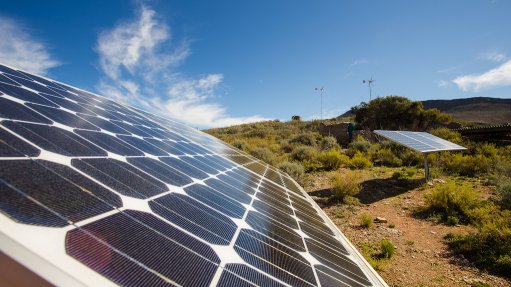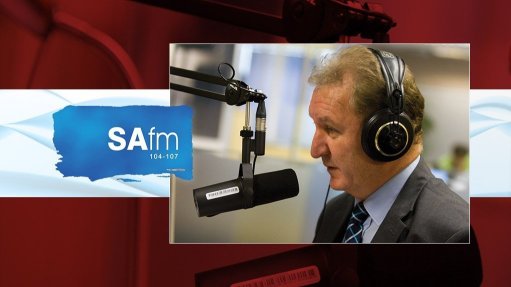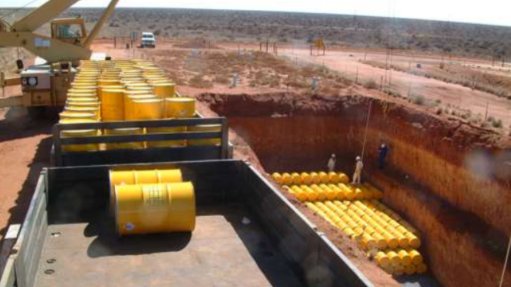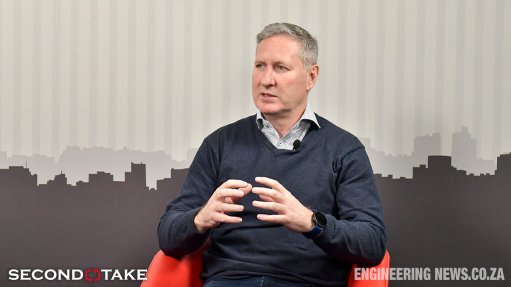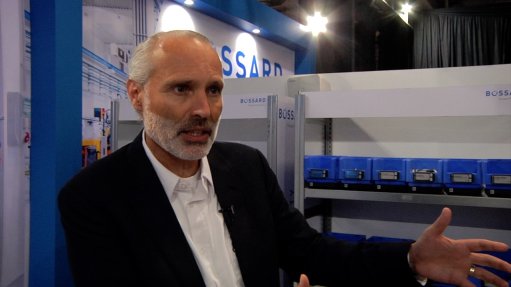Budget expected to show conditions remain unsupportive of fiscal consolidation – Nedbank
Finance Minister Enoch Godongwana's 2024 Budget Speech, to be delivered next week, is expected to show that economic conditions will remain broadly unsupportive of significant fiscal consolidation, complicating the task of reducing the budget deficit and containing the relentless rise in public debt, financial services firm Nedbank states in a 2024 budget preview.
Persistent loadshedding, worsening transport bottlenecks, soft global demand and subdued commodity prices will hurt production and exports, while high domestic interest rates and the challenging operating environment will continue to weigh on consumer spending and fixed investment, it says.
National Treasury already accounted for the adverse turn in the economy in the Medium Term Budget Policy Statement (MTBPS) in November last year. Therefore, Nedbank does not expect significant changes to the gross domestic product (GDP) and inflation forecasts for the next three years.
However, its estimates suggest that Treasury more than likely underestimated the impact of the weaker economy on tax revenue.
"The challenging economic environment has worsened the budget ratios. However, we expect the National Treasury to signal its commitment to stabilising the fiscal position, but the risk of missing the new targets remains high," Nedbank says.
The Medium-Term Expenditure Framework (MTEF) figures will reflect the lower revenue and higher expenditure bases, but Treasury will probably strive to bring the budget deficit back to sustainable levels, albeit at a much slower pace than planned in the MTBPS 2023, it adds.
"We expect this will be a difficult task and, ultimately, the fiscal position is unlikely to improve significantly until economic growth rises to sustainably support corporate profitability, household incomes, and the expansion of the tax base.
"On the expenditure side, the government needs to accelerate the measures to consolidate its operations by scaling down programmes and entities that do not significantly contribute to service delivery owing to the duplication of functions. The intention to shift towards a more efficient public service was stressed in the MTBPS 2023, and we will watch out for an update on the progress made," the bank says.
Further, over the MTEF, the many social expenditure demands will have to take a back seat for a while, with Treasury prioritising pressing issues that will help to revive economic growth faster, primarily the Eskom debt package and the Transnet bailout, it notes.
"Budget 2024 will be presented against a challenging economic environment. Although the world economy held up better than most expected in 2023, growth in South Africa's main export markets, namely the Eurozone and China, will likely weaken further before turning the corner later this year. As a result, international commodity prices will probably remain subdued, weighing on earnings in the mining and manufacturing sectors."
In addition to these factors, local businesses will continue to grapple with persistent loadshedding, crumbling rail services and delays in cargo processing at the country's ports. Consequently, operating costs will remain elevated, which, together with sluggish earnings growth, will contain corporate profits, limiting the upside for company tax revenue, it adds.
Simultaneously, consumers will probably trim their spending further in the first half of the year as the squeeze from higher interest rates intensifies.
"A modest recovery is expected during the year's second half and into 2025. Global and domestic demand should turn the corner as lower inflation boosts real incomes and central banks start to ease monetary policy," Nedbank says.
The bank expects Treasury to revise its real GDP growth projections for 2023 lower from the 0.8% estimated in the MTBPS 2023, but to leave their forecast for 2024 unchanged at a modest 1%. It also forecasts household spending growth of only 0.5% in 2023 and a further slowdown to 0.2% in 2024.
"Gross fixed capital formation held up relatively well in 2023, supported by the firm activity in renewable energy projects, but we expect a moderation to 0.5% in 2024 from the high base set over 2022 and 2023, and as some of the construction projects are completed.
"Overall economic growth will rebound, albeit modestly, over the MTEF, supported by the slight improvement in power supply and firmer global and domestic demand.
"However, domestic logistical constraints will remain a significant drag on economic growth," Nedbank highlights.
Meanwhile, the less supportive global environment, and intense cost pressures in the domestic economy, have contained aggregate revenue growth in 2023/24, following two years of higher-than-expected revenue growth, the bank said.
A slump in corporate taxes has dampened taxes on income and profits, while personal taxes have been supported by non-regular pay. Taxes on goods and services have been underpinned by the higher value-added tax (VAT) collections, which were lifted by continuing high inflation.
Further, the slump in commodity prices has eroded the mining sector's earnings, hurting corporate earnings significantly. Company taxes were down by 11.9% year-on-year for the first nine months of the fiscal year from April to December 2023, and Nedbank projects a decline of 10.5% for the full fiscal year.
Personal taxes will rise by around 8% in 2023/24, it adds.
REVENUE
The bank forecasts that gross tax revenue will increase by 3% in 2023/24, falling R94.8-billion short of the Budget 2023 estimate and R38-billion lower than the MTBPS 2023 estimate, it notes.
"We project the revenue-to-GDP ratio to hover around 27% of GDP over the MTEF period, with tax buoyancy contained by the underlying economic slack," the bank says.
Nedbank does not expect a wholesale increase in tax rates, as raising tax rates in a weak economy has proven to be counterproductive. Tax increases in 2015, 2017 and 2018 hurt economic activity more than it boosted tax collections. The expected additional revenue did not materialise, with the affected taxes shrinking over that period.
"Therefore, we expect the additional revenue to be raised from the usual adjustments of tax brackets," it states.
However, tax breaks for investment in renewable power generation tabled in February 2023 are not likely to be expanded, although they could be extended for another year, the bank notes.
EXPENDITURE
Nedbank expects Treasury to signal continued expenditure restraint, compelled by the meagre revenue growth. Expenditure growth in the first nine months of 2023/24 was 7.7% year-on-year, which is well ahead of 3.4% projected for the year in the Budget 2023 and 5.4% projected in the MTBPS 2023.
"The higher-than-estimated public sector wage settlement and the jump in debt service costs caused the overshoot," the bank highlights.
"We do not expect additional allocations to be high, as National Treasury intends to limit the compensation bill to close to 30% of consolidated expenditure over the MTEF," the bank says.
Interest costs will remain the fastest-growing expenditure item and will likely exceed 20% of main budget revenue by 2025/26.
"The wider budget deficit, the additional borrowing for the Eskom debt package, and now more debt issuance to cover the Transnet bailout package will also add to the tally, which is forecast to average 5.5% of GDP over the MTEF period," the bank points out.
"Transnet is reported to need a more substantial capital injection, as it fails to generate sufficient operational revenue to service its R130-billion debt pile. We assume further assistance of R25-billion a year in 2024/25 and 2025/26," it says.
Meanwhile, the budget deficit is forecast to rise to 5.4% in 2023/24, which is higher than the revised 4.9% in the MTBPS 2023 and well above 4% in Budget 2023.
Over the MTEF, Nedbank expects the deficit to narrow only slowly, dropping to 4.4% in 2026/27.
"Over the MTEF, we expect the debt-to-GDP ratio to peak at 79.3% in 2025/26, easing gradually after from 2026/27 onwards. The highest point exceeds the 77.7% projected in the MTBPS 2023, partly reflecting our expectations of the Transnet bailout."
The consolidated budget deficit for 2023/24 rises to about 5.4% of GDP, narrowing only slightly to 5.2% in 2024/25, with National Treasury delaying more significant deficit reduction to the outer years of the MTEF period.
Nedbank projects a primary surplus from 2025/26, which is one year later than estimated in the MTBPS 2023.
Comments
Press Office
Announcements
What's On
Subscribe to improve your user experience...
Option 1 (equivalent of R125 a month):
Receive a weekly copy of Creamer Media's Engineering News & Mining Weekly magazine
(print copy for those in South Africa and e-magazine for those outside of South Africa)
Receive daily email newsletters
Access to full search results
Access archive of magazine back copies
Access to Projects in Progress
Access to ONE Research Report of your choice in PDF format
Option 2 (equivalent of R375 a month):
All benefits from Option 1
PLUS
Access to Creamer Media's Research Channel Africa for ALL Research Reports, in PDF format, on various industrial and mining sectors
including Electricity; Water; Energy Transition; Hydrogen; Roads, Rail and Ports; Coal; Gold; Platinum; Battery Metals; etc.
Already a subscriber?
Forgotten your password?
Receive weekly copy of Creamer Media's Engineering News & Mining Weekly magazine (print copy for those in South Africa and e-magazine for those outside of South Africa)
➕
Recieve daily email newsletters
➕
Access to full search results
➕
Access archive of magazine back copies
➕
Access to Projects in Progress
➕
Access to ONE Research Report of your choice in PDF format
RESEARCH CHANNEL AFRICA
R4500 (equivalent of R375 a month)
SUBSCRIBEAll benefits from Option 1
➕
Access to Creamer Media's Research Channel Africa for ALL Research Reports on various industrial and mining sectors, in PDF format, including on:
Electricity
➕
Water
➕
Energy Transition
➕
Hydrogen
➕
Roads, Rail and Ports
➕
Coal
➕
Gold
➕
Platinum
➕
Battery Metals
➕
etc.
Receive all benefits from Option 1 or Option 2 delivered to numerous people at your company
➕
Multiple User names and Passwords for simultaneous log-ins
➕
Intranet integration access to all in your organisation






